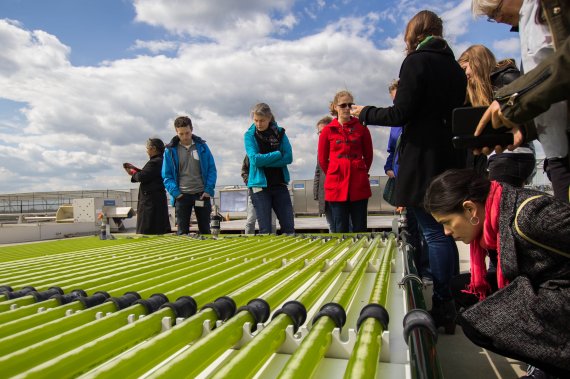Photo: Marte Hofsteenge
Further funding for the Wageningen algae research was hanging in the balance last year. The funding of a large eight-million-euro research programme came to an end at the end of 2015, and the consortium of WUR and algae companies did not succeed in finding funding for a large-scale follow-up study. With the handful of smaller projects she has acquired, there is now sufficient funding, says Barbosa. This year she can take on six new researchers.
First of all she got a six-million-euro EU project, and she can spend one and a half million of that in Wageningen. In the Magnificent project, researchers will try to extract pigments and omega 3 fatty acids from algae. Barbosa: ‘We have selected algae strains which manufacture the fatty acids DHA and EPA. Now we are going to make those strains more robust, breeding them to produce more of these healthy nutrients.’
Secondly, Barbosa’s group will use NWO research funding to develop algae to replace palm oil. The idea is to genetically modify algae to produce the same fatty acids as the oil palm. That is then the first time modified algae have been tested at the research facility. They are bred in a sealed reactor and are intended for non-food use, says Barbosa.
The third line of research Barbosa has lined up is to test a new algae reactor on Bonaire, with funding from the NWO. Her aim is to test and scale up a new, efficient and cheap reactor in a hot country. And then there is another project funded by the Norwegian equivalent of NWO, the Research Council of Norway, which will study the use of algae for bread, beer and fish feed. ‘The aquaculture companies are looking for alternatives for fish feed in salmon farming. The idea is to use the proteins and oil in the algae as fish feed, and the sugars for the production of bread and beer.’

